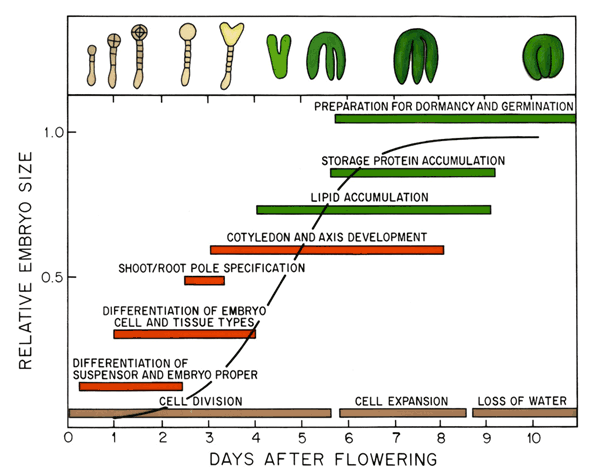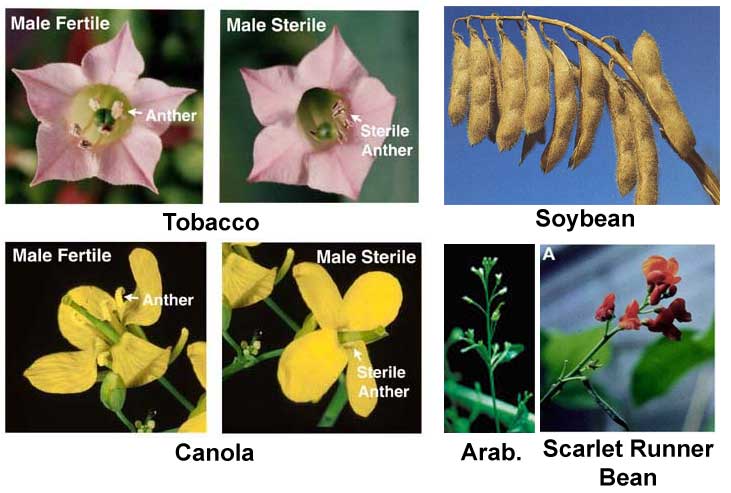Molecular and Genetic Dissection of Plant Development
My laboratory has been investigating the molecular processes controlling the development of specialized cells in higher plants. The major questions that I have addressed in my research are
|
|
|---|
Historically, I have used a variety of different plant systems, because there is not an ideal plant to investigate all questions of plant development and molecular biology and because approaches, techniques, and knowledge have changed over the years enabling a model plant, such as Arabidopsis, to take "center stage" at the present time. Plants that I have utilized for my experiments include (1) tobacco for molecular studies on plant organ systems and seeds, and as a transgenic plant to dissect gene control elements, (2) soybean, an economically-important crop, for investigating seed and embryo development, (3) canola, an economically-important crop, used as a model to genetically engineer for male fertility control, (4) Arabidopsis as a model plant for the genetic dissection of male reproduction and seed development, and most recently, (5) Scarlet Runner Bean because it has "giant" embryos that are well-suited for using genomics to investigate the earliest stages of plant development.The plants used in my laboratory at the present time are the Scarlet Runner Bean, Arabidopsis, and tobacco. Currently, my laboratory is part of The Seed Institute and is using high throughput genomics' approaches to uncover genes that control the specification of cell types at the earliest stages of embryo development. EST studies with the Scarlet Runner Bean are providing the first profiles of genes active three-four divisions after fertilization. Reverse genetics experiments using Arabidopsis are directed at uncovering the functions of transcription factor and signaling protein genes known to be in the embryo proper and suspensor regions during early embryogenesis. GeneChip® and Microarray studies are profiling gene expression changes during seed development and using mutants to uncover genes that act downstream of genes that control embryo development. |
 |
